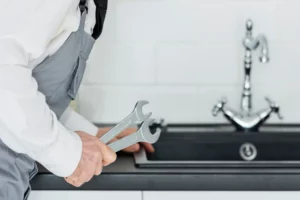 When it comes to maintaining a functional and comfortable home, proper plumbing arrangements play a crucial role.
When it comes to maintaining a functional and comfortable home, proper plumbing arrangements play a crucial role.
From supplying clean water to removing waste efficiently, your plumbing system ensures the seamless operation of various household activities.
In this guide, we’ll walk you through essential steps for arranging home plumbing effectively.
Planning Your Plumbing System
Before embarking on any plumbing project, careful planning is key. Consider factors such as the location of water sources, the placement of fixtures, and the flow of wastewater. Plan a layout that minimizes the distance water has to travel and maximizes energy efficiency.
Water Supply Arrangements
Ensure a reliable water supply arrangement by connecting your home to the main water line. Use quality pipes and fittings to prevent leaks and corrosion. Map out the path of water pipes, keeping them away from potential hazards like heat sources and electrical lines.
Fixture Placement and Drainage
Strategically place fixtures to optimize convenience and space. The kitchen, bathroom, and laundry areas need careful consideration.
When arranging drainage, ensure proper slope to prevent clogs and backups. Connecting fixtures to the main sewer line requires meticulous installation to avoid future issues.
Ventilation and Airflow
Proper ventilation is essential for preventing foul odors and allowing air to escape from the plumbing system. Arrange vent pipes vertically to facilitate the release of sewer gases and maintain proper water flow. This step contributes to the overall hygiene and functionality of your plumbing.
Hot Water System
When arranging your plumbing, don’t forget to incorporate a hot water system. Determine the appropriate size and type of water heater for your household’s needs. Plan the location of the water heater to minimize heat loss and optimize efficiency.
Regular Maintenance Considerations
Your plumbing system requires regular maintenance to ensure its longevity. Incorporate shut-off valves at key points to enable easy repairs and replacements. Regularly inspect pipes, joints, and fixtures for signs of leaks, rust, or damage, and address any issues promptly.
DIY vs. Professional Help
While small plumbing tasks can be tackled as DIY projects, complex arrangements should be left to professionals. A skilled plumber can provide expertise, ensuring your plumbing adheres to local codes and regulations. This approach helps prevent costly mistakes and ensures a safe and functional system.
A well-organized plumbing system contributes to the comfort and functionality of your home, so take the time to plan meticulously and consider seeking professional assistance for complex projects.
Picture Credit: Freepik
